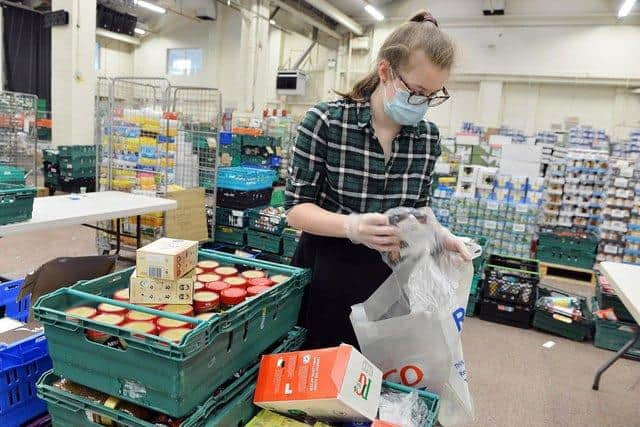Fears Sheffield food banks are a ‘sticking plaster’ and the tip of the poverty iceberg
and live on Freeview channel 276
Shame and trying to navigate a complex welfare system are two of the main reasons people don’t use food banks, says a new group set up by councillors.
A report by the Food Poverty Working Group says: “We know that Covid has disproportionately affected our poorest communities, and the worst is yet to come.
Advertisement
Hide AdAdvertisement
Hide Ad“We are approaching the cliff edge as some of the temporary protections and support, such as furlough, Universal Credit uplift, and stay on evictions are removed.


“We’ve seen food poverty rise over the last few years, and we know that Covid has pushed more people into it, with the worst yet to come.
“We heard people often feel ashamed and embarrassed to ask for emergency food or financial aid, and that our own internal processes don’t always make it easy for people to access, or even be aware of, help that they are entitled to.”
Voluntary Action Sheffield collected data from 19 food banks, between April and June 2020, and found the number of households increased by just over 92 per cent from 1,144 to 2,202.
Advertisement
Hide AdAdvertisement
Hide AdBut this only shows supply, not level of need, which could be much higher.
Organisations are doing invaluable work providing emergency financial and food aid, giving advice on debt and welfare and helping social isolation.
But the report adds: “A key message that came through in many of our conversations, is that food poverty is the tip of the poverty iceberg.
“The root cause of food poverty is people not having enough income to meet their needs and food is a cost that can be squeezed unlike rent and utility bills.
Advertisement
Hide AdAdvertisement
Hide Ad“Emergency food aid, whilst vital, is only a sticking plaster. We need to deal with the myriad of underlying issues – housing, employment, income to name a few, to achieve long term solutions.
“A joined up strategic approach to tackling poverty with a tangible action plan underpinning it is essential.”
The full report can be read here